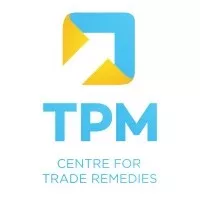- within Media, Telecoms, IT, Entertainment and Antitrust/Competition Law topic(s)
- in United States
In August 2023, the WTO panel issued its report in a dispute brought by the United States concerning the consistency of additional duties imposed by China in retaliation to the US Section 232 tariffs on steel and aluminium products. The panel found that China's imposition of duties was inconsistent with the Most Favoured Nation and National Treatment obligations of the Member State. Pursuant to the issuance of the Panel report, China notified the WTO of its decision to appeal. However, with the Appellate Body not being functional, China's appeal is not expected to yield concrete results.
Background of the dispute
The present dispute arose with regards to certain additional customs duties imposed by China on products imported from the USA, in retaliation to the Section 232 measures imposed by the United States in 2018. In April 2018, the USA imposed additional 25% and 10% customs duties on steel and aluminium imports from China respectively. The USA challenged such measures as being inconsistent with Article I:1, Article II:1(a) and II:1(b) of GATT 1994.
Arguments by the parties
The USA challenged the measures before the Panel and contended that the measures were inconsistent with GATT as the additional duties imposed by China did not grant Most Favoured Nation treatment to USA. Further, USA also argued that the additional customs duty were in in excess of the bound rate committed to by China. On the other hand, China argued that the Section 232 measures imposed by USA were essentially safeguard measures. Pursuant to imposition of such measures, China requested for consultations with the USA. However, since no agreement was reached between the two countries, China proceeded to impose retaliatory measures by imposing additional customs duty on imports from USA. Thus, China's retaliatory measures were covered under Article 8.2 of the Agreement on Safeguards and Article XIX:3(a) of the GATT 1994.
Decision of the Panel
The Panel considered the arguments of both the members. With regards to the contention of China that the measures were in retaliation to the safeguard measures imposed by USA, the Panel held that that Section 232 measures imposed by USA were measures towards national security which were covered under Article XXI of the GATT. These measures were not safeguard measures, covered under Agreement on Safeguard. Thus, China's retaliation measures were not covered under Article 8.2 of the Agreement on Safeguard.
Further, the Panel observed that the measures are inconsistent with Article I:1 since China failed to accord Most Favoured Nation treatment to the USA when compared to imports from other countries. Further, the measures were also held inconsistent with Article II:1(a) and (b) of GATT as they were in excess of China's bound rates under Schedule of Commitments.
Conclusion
The dispute and its implications, which are yet to fully unfold, take a notable place in the backdrop of the geopolitical scenario marked by delicate trade relations amongst WTO members. While China has been asked by the Panel to bring its measures in line with its WTO obligations, China has, on 20th September 2023, notified the WTO of its decision to appeal against the report. However, since the Appellate Body is not functional at present, China's appeal enters a legal void and halts its enforcement of the panel report.
To read the complete article, please visit https://tpm.in/insights/united-states-challenges-chinese-additional-customs-duty-at-wto/
The content of this article is intended to provide a general guide to the subject matter. Specialist advice should be sought about your specific circumstances.



